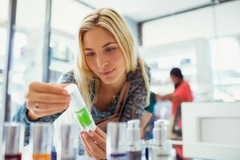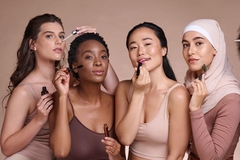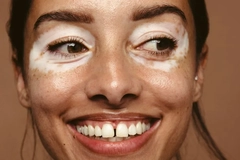Drunk Elephant recalls three skin care products over ingredient mix-up
Drunk Elephant voluntarily recalls specific batches of its skin care products after it accidentally switched surfactants and preservatives and found two unlisted ingredients in the formulations. The company urges customers to stop using the affected products immediately and return them for a refund or replacement, as the mix-up could cause skin reactions and infections.
The recall, which includes specific batches of its Beste No. 9 Jelly Cleanser, Protini Polypeptide Cream and Lala Retro Whipped Cream in the US, is due to an isolated production error, says the company.
Sample packets of Lala Retro found in the packaging of O-Bloos Rosi Drops may also be affected, according to the company, although the Rosi Drops themselves are unaffected. Drunk Elephant emphasizes that the issue is limited to specific batches.

Unlisted ingredients
Surfactants are often used in hair and skin care product formulations to cleanse, emulsify and foam. Preservatives keep microorganisms from contaminating or multiplying in a product during its shelf life.
The recalled batch of Beste No. 9 Jelly Cleanser contains an unlisted preservative blend, Microkill COS, which, while commonly used in cosmetics, may irritate people with sensitive skin.
Meanwhile, both the Lala Retro Whipped Cream and Protini Polypeptide Cream lacked preservatives entirely, leading to microbial contamination. According to a statement made by Drunk Elephant, “some lots of affected batches were found to contain bacteria most closely related to the genera Klebsiella and Enterobacter.” These bacteria are commonly found in nature, but pose infection risks to individuals with weakened immune systems or damaged skin.
Testing revealed the presence of Candida parapsilosis, a yeast that could also pose infection risks for individuals with compromised immune systems.
Specific batches of Lala Retro and Protini Polypeptide Cream include an unlisted surfactant, Mirataine CBS, which may cause skin irritations.
Drunk Elephant has published an FAQ section on its website to help users identify affected batch numbers, provide instructions on how to stop using the products safely and return them for a refund or replacement.
Mixed opinions on the mix-up
Although Drunk Elephant has expressed regret for the incident and reassured customers that the error was isolated, the voluntary recall has not escaped social media scrutiny and instead sparked discussions about the brand’s safety and quality control.
Drunk Elephant posted a general announcement of the recall on its Instagram page without any specifics about the ingredient mix-up. Later, after followers voiced frustration with the vagueness, the brand published more details. During this time, the specifics were only made available on the brand’s website.
The post garnered mixed reactions, with some applauding the company’s transparency and proactive approach to addressing the issue and others suggesting the recall might signal deeper issues within its supply chain.
Despite the controversy, the brand says it remains committed to maintaining customer trust, emphasizing that safety and quality remain its top priorities.
Under the social spotlight
The recall further fuels opinions about the growing trend of “Sephora kids” — tweens and teens influenced by social media to purchase high-end products like Drunk Elephant, sometimes without understanding that these formulations may not suit young skin.
While the brand has previously urged younger users to avoid specific formulations, the recall has resurfaced debates over whether companies are responsible for ensuring their products are marketed appropriately.
On platforms like TikTok, the conversation continues to draw attention to the relationship between social media trends, beauty marketing and consumer safety.














